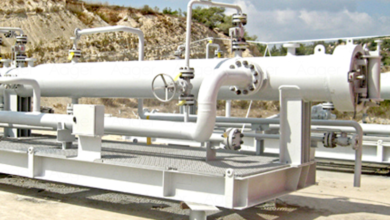The Rise of ESG Facility Management: How Technology Is Driving Sustainable Building Operations

As sustainability continues to rise on the global business agenda, more companies are embracing esg facility management as a core strategy to meet their environmental, social, and governance (ESG) goals. In the technology industry especially, ESG compliance is no longer just a corporate buzzword — it’s a strategic advantage. From AI-powered energy monitoring to smart waste systems, innovations in tech are helping organizations manage buildings in a more sustainable, ethical, and efficient way.
But what exactly is ESG facility management, and why is it becoming essential for modern businesses?
Understanding ESG Facility Management
ESG facility management refers to the integration of sustainability principles into the operations and maintenance of buildings and infrastructure. It’s about using technologies and data to reduce environmental impact, improve social outcomes (such as employee well-being), and ensure ethical governance across building systems.
In the context of technology, this means using digital solutions to optimize resource consumption, ensure compliance, and align with global sustainability standards — all while improving the bottom line.
The Role of Smart Technology
Smart building technologies play a pivotal role in making ESG facility management effective. These solutions include:
- IoT Sensors: Internet of Things devices track energy use, air quality, lighting, water consumption, and equipment performance in real time. With this data, facility managers can identify inefficiencies and make adjustments to reduce carbon emissions.
- AI and Predictive Analytics: Artificial intelligence systems analyze trends and predict equipment failures or spikes in energy usage, allowing for preventative maintenance and better energy planning.
- Building Management Systems (BMS): Advanced BMS platforms integrate HVAC, lighting, and access control systems into a single dashboard, helping managers make real-time ESG-aligned decisions.
By combining these technologies, companies can reduce waste, lower utility costs, and maintain compliance with increasingly strict ESG regulations.
See also: AI Face Swap Technology in Live Performance Augmentation
Reducing Environmental Footprints
Environmental sustainability is the “E” in ESG, and it’s often the area with the most visible impact in facility management. Technology-enabled ESG strategies help reduce greenhouse gas emissions, conserve water, and minimize energy usage — all while ensuring comfort and productivity within workspaces.
For example, automated lighting and HVAC systems adjust settings based on occupancy and weather conditions, cutting down on unnecessary power usage. Solar panel integration and energy storage systems further support greener energy practices. These improvements not only benefit the environment but also reduce long-term operational costs.
Enhancing Social Responsibility
Beyond environmental benefits, ESG facility management also addresses social factors. In today’s workplace, employees expect safe, healthy, and inclusive environments. Smart tech plays a vital role here too — for instance, air quality sensors can help maintain optimal indoor conditions, which directly impacts employee health and productivity.
Additionally, access control and surveillance systems that ensure physical security, coupled with automated accessibility features for differently-abled individuals, contribute to a socially responsible facility environment.
Stronger Governance Through Data Transparency
The “G” in ESG—governance—is all about accountability, transparency, and ethical operation. Tech-driven facility management solutions generate reliable data that can be used for compliance reporting, stakeholder communication, and internal audits.
Centralized dashboards and cloud-based reporting tools allow facility managers and executives to track ESG KPIs across multiple buildings, campuses, or regions. This level of visibility not only aids in internal governance but also demonstrates credibility to investors, clients, and regulators.
Why ESG Facility Management Matters More Than Ever
With growing pressure from stakeholders, governments, and global investors, businesses can no longer afford to ignore ESG standards. ESG facility management enables companies to turn buildings from cost centers into strategic assets. It allows tech firms, in particular, to lead by example — showcasing how innovation can drive sustainable, ethical progress.
In the long run, investing in ESG-aligned facility operations is not just about compliance. It’s about future-proofing organizations, enhancing brand reputation, and contributing meaningfully to a more sustainable planet.
Conclusion
ESG facility management is transforming how companies operate their physical spaces, especially within the technology sector. As smart solutions continue to evolve, they will play an even greater role in aligning facility operations with corporate sustainability goals. Businesses that act early will not only benefit the environment but also gain a competitive edge in an increasingly ESG-conscious world.




